
ICE says Nashville implements 287(g) in a manner "contrary to the objective of the program"
Sheriff originally agreed that only threats to the public would be detained and deported
Reality: misdemeanors were a whopping 80% of deportations
After conducting a performance audit from September 2007 to January 2009, the U.S. Government Accountability Office (GAO) has released a
report about the so-called 287(g) program, which establishes local-federal partnerships for immigration law enforcement. This report relates to Nashville in that we are a participant in 287(g), and the report calls into question the fact that 287(g) is used to process minor crimes, which is what happens in Nashville and not in the great majority of jurisdictions reviewed for the report. The most recent statistic for Nashville is that 80% of people processed for deportation under our 287(g) program were originally arrested for mere misdemeanors (story
here).
According to
today's Tennessean, Sheriff Daron Hall says he wasn't told that the program should be limited to more serious crimes:
When the law was written, surely it didn't say you can only process violent criminal offenders once they're convicted," said Sheriff Daron Hall, who initiated the 287g program locally in April 2007. "If that's part of their mission, it surely isn't something that's articulated."
Hall's right that the narrow focus of 287(g) wasn't on paper, but his quote above doesn't reflect his past statements in which he acknowledged and even agreed with the focus on serious criminals.
Two years ago, Hall told the
Nashville City Paper here that his office would not detain people under 287(g) unless they posed a threat to the public:
In an interview Wednesday, Hall said he understands exactly what the program's purpose is. "The purpose of this is not to automatically deport people. It's to avoid ignoring them," Hall said. And Hall said he agrees with the group that his officers should not be detaining suspected illegal immigrants who pose no threat to the public.
The "group" referred to in the quote above is the advisory group Hall set up in regard to 287(g). At the time, this group raised the concern that what Hall said about using public threat level as a detention criteria should have been included in the document proscribing his 287(g) authority:
[T]hat concession [Hall's statement about not detaining suspected illegal immigrants if they pose no threat to the public] may still not be good enough for many area immigration rights activists who believe thousands of illegal immigrants will either be deported or required to prove their legal status just for minor infractions such as driving without a license.
"The way forward has to be that they say we're going after people with criminal records," [Tennessee Immigrant and Refugee Rights Coalition Director David] Lubell said. "If someone comes into the jail with a criminal record, fine, those are the people we should be dealing with, not people who have no other record and are simply in for traffic violations."
Lubell suggested including in the Memorandum of Understanding (MOU) - the document written by the Sheriff's Office and DHS that governs local implementation of the program - a written policy spelling out that traffic violators would not be targeted. "That would start the conversation," Lubell said.
The gap in documentation that
Lubell and other advocates called attention to at the time is the same gap that the GAO identifies as a problem in this year's report:
According to ICE senior program officials, the main objective of the 287(g) program is to enhance the safety and security of communities by addressing serious criminal activity such as violent crimes, human smuggling, gang/organized crime activity, sexual-related offenses, narcotics smuggling and money laundering committed by removable aliens.
However, program-related documents, including the MOAs and program case files for the initial 29 participating agencies, the 287(g) brochure, training materials provided to state and local officers, and a “frequently asked questions” document do not identify this as the objective...
Out of 29 agencies reviewed by the GAO, Nashville is one of only 4 that is acting outside
ICE's intent for the program by detaining and deporting for minor offenses:
[O]f 29 program participants reviewed by GAO, 4 used 287(g) authority to process individuals for minor crimes, such as speeding, contrary to the objective of the program.
So is this disconnect between
ICE's vision of 287(g) and Nashville's implementation of it Sheriff Hall's problem or
ICE's? Hall seemed to imply on the front end that he would follow the letter of 287(g) - he told the Hispanic Nashville Notebook in January 2007 that "ICE regulations will determine how it is implemented" and that "if you are illegal and committing crimes, and arrested by the police department, you will be processed through this program and could face deportation" (interview
here). The government is now saying that ICE should have controlled the Memorandum of Understanding (
MOU) better - that is the finding of the GAO - but could Hall have influenced what went into the
MOU? This story doesn't have that answer.
But what is clear is that Hall is running one of only four 287(g) programs - out of 29 reviewed - that chooses to throw a wide net, as opposed to focusing on dangerous criminals. Whether Hall wants to be acknowledge now that he knew
ICE's intentions for the program at the time it was first put into place here, it appears to be his call now as to whether he is going to implement the program in the way that ICE intends. ICE certainly isn't forcing him to throw the wide net.
If ICE rewrites the
MOU, however, Hall would be forced to target dangerous criminals. Maybe we citizens can
ask our government to get started on this GAO recommendation and tighten up the MOU.
For the various instances in which this concern has been raised before in the Hispanic Nashville Notebook, you can consult these stories:- There is an opportunity here for our sheriffs, mayors, senators, presidential candidates and voters to recognize the difference between workers and real criminals and support enforcement measures which put the violent criminals at the front of the line. (October 2008)
- The controversies are usually over the bear traps carelessly set for not only dangerous criminals but also for ordinary unvisaed workers and sometimes even legal immigrants and citizens. (October 2008)
- [M]ost Hispanic and immigrant advocates believe that dangerous criminals should be the focus of immigration enforcement efforts, and not ordinary immigrants without visas, the vast majority of whom are in violation of a law only due to their having a job and not by causing public safety problems. (June 2008)
- Davidson County public defender Ivan Lopez was quoted in this front-page article in the Tennessean on Sunday as saying that a Nashville-ICE partnership program called 287(g) "was sold to the public as a way to take dangerous criminals off the street" but that "[i]n reality, what's happening is you are breaking up families." (April 2008)
- Catalina Nieto, public awareness coordinator for the Tennessee Immigrant and Refugee Rights Coalition, said that she commends any program that removes dangerous criminals from the streets but that the screening program is a "clumsy tool" to do that. (March 2008)
- HNN: Is the primary purpose of 287(g) to enhance your ability to protect the population from dangerous criminals who also happen to have no valid immigration status, or is it something else? How does your office attempt to accomplish this now in the absence of 287(g)? Has there been any success on this front without 287(g)? Sheriff Daron Hall: "The ultimate goal is to increase public safety by detaining and removing those who pose a risk to the Nashville community." (January 2007)
- We need to be prudent and conscientious when drafting the Memorandum of Understanding. (January 2007)
- I believe you would be hard pressed to find a single immigrant or immigrant advocate that doesn’t believe in incarcerating or deporting criminals. The people living along Nolensville Road want the same things for their community that those living along West End Avenue want. (January 2007)
- One concern about the program is that it will not distinguish between dangerous criminals and ordinary people. For example, Tennessee has stripped driving privileges (and motor vehicle insurance) from many noncriminal legal and illegal immigrants, which makes it more likely that they will be processed by law enforcement for driving without a license, even though they have not committed any violent crimes. In one recent instance, even without 287(g) in place, a local mother named Claudia Nunez was scheduled for deportation when she showed up to traffic court. (January 2007)
- Federal officials disagree with the way Nashville is treating people like Ms. Nunez. "Temple Black, spokesman for ICE [formerly known as INS] in the Southeast, seems puzzled that Metro law enforcement would expend resources on busting undocumented workers who aren’t dangerous criminals. 'What we are focused on is aggravated felons…. We don’t go down to the Shell Station and pick up [undocumented workers].'” By seizing Ms. Nunez and people like her, Nashville implements a policy that stands in contrast to ICE's view that resources should be prioritized in a manner to best address the greatest threats to the community. (October 2006)
For more stories in the Hispanic Nashville Notebook about 287(g), click here:
http://www.hispanicnashville.com/labels/287g



Photo by
Matt Blaze. Licensed under
Creative Commons.



 U.S. Men’s National Team head coach Bob Bradley is optimistic about tomorrow night's game: "We are very excited to be playing such an important World Cup qualifying match in Nashville. We have had very good experiences there, both in 2006 before the World Cup and during qualifying for the 2008 Olympic Games. LP Field is an excellent facility, and we look forward to tremendous support from the fans."
U.S. Men’s National Team head coach Bob Bradley is optimistic about tomorrow night's game: "We are very excited to be playing such an important World Cup qualifying match in Nashville. We have had very good experiences there, both in 2006 before the World Cup and during qualifying for the 2008 Olympic Games. LP Field is an excellent facility, and we look forward to tremendous support from the fans."
 Photo by Chris "Mojo" Denbow. Licensed under Creative Commons.
Photo by Chris "Mojo" Denbow. Licensed under Creative Commons.

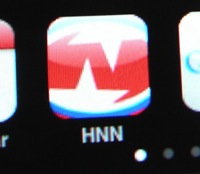

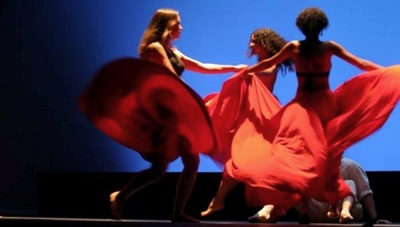


 Photo by
Photo by 
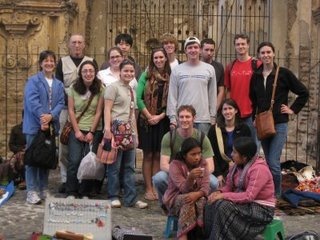

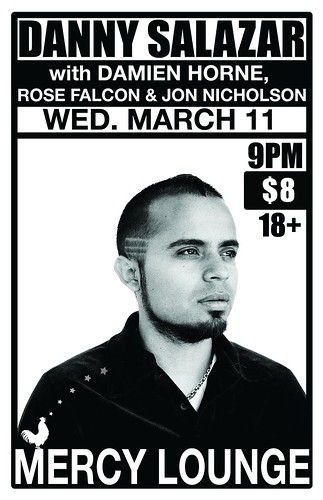

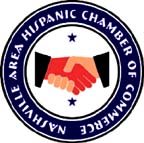

 vanderbilt.edu
vanderbilt.edu Photo by
Photo by 



 On February 27, NewsChannel5 reported
On February 27, NewsChannel5 reported 